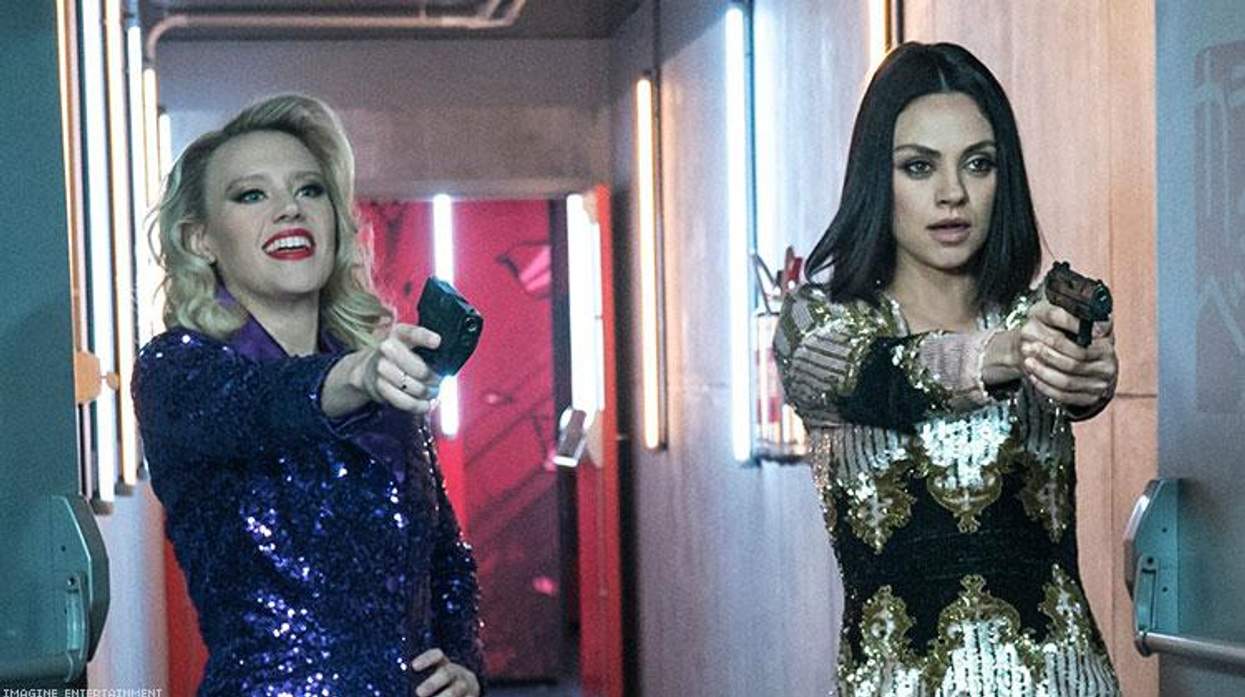"It's not necessary to just keep rebooting and reimagining old franchises, because you're just always going to be compared to and in the shadow of the male version that came before," explains Susanna Fogel, the director of upcoming action-comedy film The Spy Who Dumped Me.
Still, she has seen Ocean's 8, the Ghostbusters reboot, and "any movie that has female characters and comedy."
But she's ready to come to the box office with some originality. Her film, which stars Mila Kunis and Kate McKinnon as best friends fleeing assassins across Europe, was pushed back a month, to August 3, after "a phenomenal test screening." In a couple of months, she might break the glass ceiling of comedy, becoming the next female writer-director to become a household name in the age of Patty Jenkins and Greta Gerwig.
"We're attaching ourselves to these old stories rather than creating new ones," she tells The Advocate. She's not just making original content; in many ways her story is yet to have been told.
The creator of the television series Chasing Life, she is the first female director to work with Mila Kunis, who raved that "there's a noticeable difference" on Fogel's set. "No one is yelling at each other," explained the actress, who's been in comedy since she was 14.
While female-centric comedies have become more mainstream, women creating them is still rare.
So are Fogel's strong relationships within the queer community. Her friends call her "the lesbian whisperer." Her sister is out, and she's just one of the people in Fogel's inner circle who identifies as LGBT. "The idea that there's a division that couldn't be bridged is so foreign to me because most of the people who I spent my 20s with were lesbians," says Fogel.
One of those people is Joni Lefkowitz, with whom she wrote her breakout film, Life Partners, which studies the growing pains of a straight woman and a lesbian who are best friends. "We also had this platonic friendship for years and years where she was dating women and I was dating men," Fogel says. "We were never competing in that way, but we also got to kind of live in each other's worlds a lot of times."
One lesbian Fogel has been whispering to is costar Kate McKinnon. "Kate is queer," Fogel explains. "It was important to her to not sort of play into heteronormative tropes of friends who are hooking up with guys, going to the bar."
Although in the film McKinnon's character isn't explicitly queer, "it's sort of obvious to most people that she's not straight-identifying," the writer-director says.
"Even if she wasn't asking for a romantic subplot to be added, because it didn't feel like the story was really about that, she sort of didn't want to feel like she was defaulting to just like, a hot blond friend who wants to sleep with guys," says Fogel.
Instead, she and David Iserson, who cowrote the screenplay, scripted lines for her that were "rejecting men that were interested in her and her disgust with sleazy men, and how she kind of generally doesn't like the patriarchy."
"It was important to us to tell a story, albeit a heightened adventure story, about two friends that is not about them fighting, them breaking up as friends, them getting back together as friends," says Iserson. Unlike female buddy comedies like Bridesmaids or The Heat, it's "a friendship story that doesn't get its conflict from the friends having conflict."
The Spy Who Dumped Me is not so much about the spy who dumped her, but rich and complicated sisterhood.
"Your best friend is your primary partner, and partnership and those relationships are so important," asserts Fogel.
But what's also important to Fogel are opportunities -- ones that are suited for her voice and ability, rather than pigeonholing her into a superficial concept of progress.
"It's easier for me to get a job on a female superhero movie than it is on a male dramedy, even though male dramedies are totally in my wheelhouse," she notes. She feels studios need to believe in women's voices when they're not obligated to do so. "I would love to be considered for movies that aren't just out there looking for a female director because they know they have to hire one, or because the story is about a woman, so they know they need a woman."
Empowering women as creatives rather than tokens is the goal. Female-centric stories being told by writers and directors who've actually lived within those experiences is the first step. But just as men who've never been to the moon get the chance to conceptualize another flick about astronauts, Fogel believes that female directors should be given the green light to tell stories outside the bios on their Wikipedia pages.
"I'm looking forward to a time that we're given an opportunity," she says, "but not every opportunity is so obviously gendered."




































































Charlie Kirk DID say stoning gay people was the 'perfect law' — and these other heinous quotes